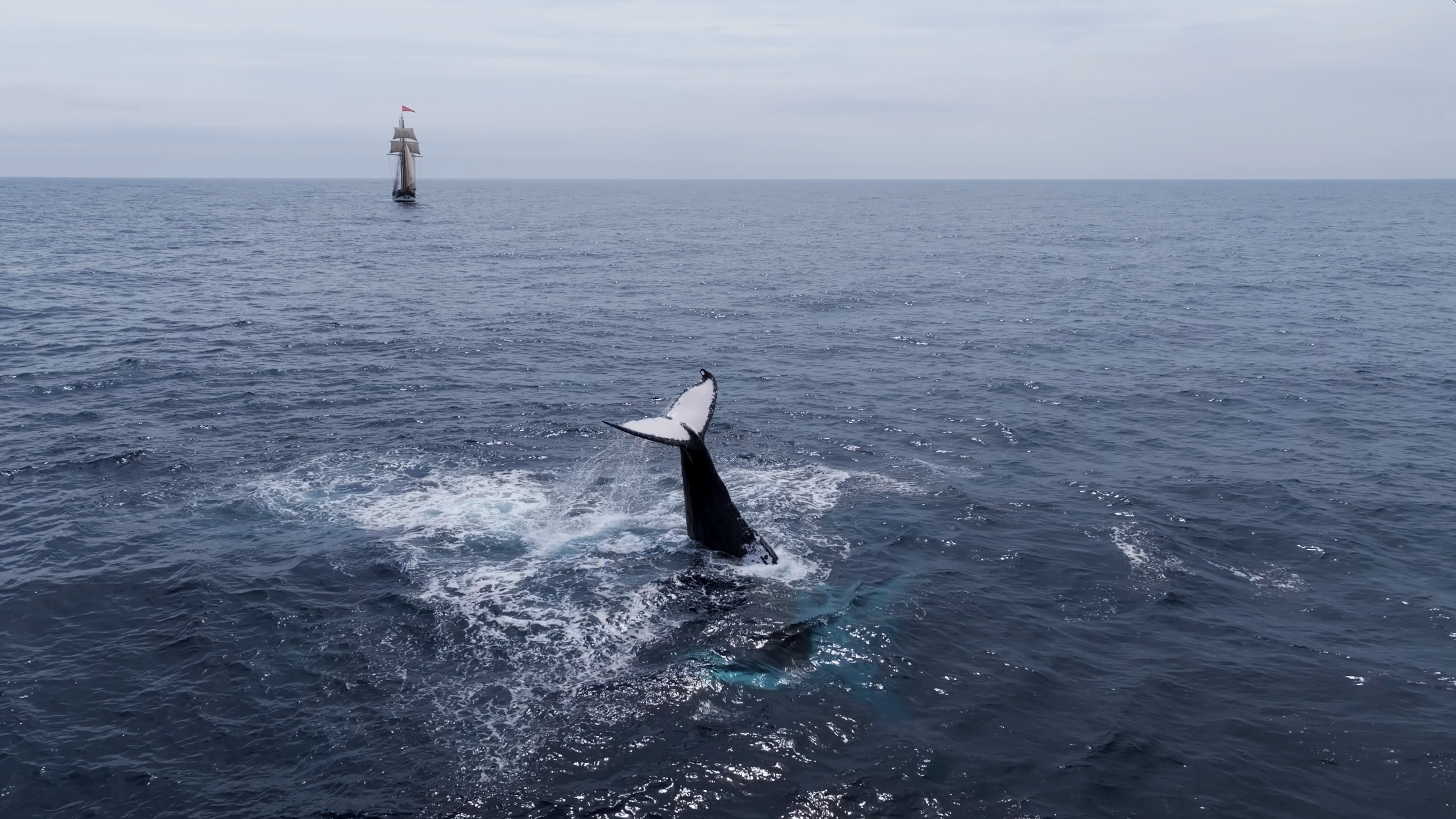I see the whales
I grew up in a coastal town nestled along the migratory path of Gray Whales of the Pacific Ocean. I volunteered at the local whale museum for years, educating the community about whale biology, ecology and migration. I knew everything about these magnificent giants, but I had a secret I didn’t tell anyone – I was never able to be the first to spot one in the horizon. While volunteers beside me shouted “Here’s a cub and mother breaching near post 11!” and “Whale fluke at post 4!” my eyes only caught the end of the spectacle. I would stare out into the water for hours with my binoculars, but I was never the first one to spot one. Why couldn’t I see the whales? I was supposedly the scientist, appreciative and attentive to nature’s workings. It may sound silly, but that was my puberty insecurity that I held to adulthood.
So when the sailors at the Oosterschelde yell “Whales at 3 o’clock!” I rush to the bow to catch the sight, knowing that I would never be the first to spot one. Dozens of whales emerge all around us, but I am only able to follow others’ fingers to grasp the last glimpses of the whale breaches. I desperately want to spot one myself, fueled by my instinctive desire to make the most out of this sailing voyage. During any journey I am on I constantly search for life lessons to learn, stories to tell, and stunning pictures to share with Watson Headquarters, and I am disappointed in myself when I cannot.
Days aboard the ship blur together, and life settles into a rhythm of familiarity and tranquility. Days start at 7:30AM, waking up to the bell for breakfast, and it continues until the stars emerge while I fight away the sleep to take the helm. Sailing, though not inherently grand or magical, offers a therapeutic escape – the simplicity of the labor, the endless expanse of the ocean, and the occasional albatrosses that speckle the sky. I let the wind gently tug on our sails, carrying us from one corner of South America to another. I pull out the slack, belay the ropes, and square the jib. Contrary to what I was initially looking for, it is this nothingness that helps me find a sense of peace, emptying my mind of insecurities, anxieties and fears. Rather than feeling anxious about finding more whales, I find my favorite reading spot – against the rowboat nested between boxes and neatly folded sails – to read Darwin’s Armada, tales of a young, slightly clueless scientist who voyaged into the sea to find his scientific footprint, 200 years ago.
I ask Timo to teach me how to climb up the mast. I clip on my harness, swing myself over the rigging and climb up the ladder. I stand atop the mast. It’s still the same expansive ocean, and a couple of albatrosses; until the most beautiful spectacle happens right in front of my eyes – a humpback whale, adorned with barnacles on its jaw and boasting two blowholes, gracefully breach. Then again, then again. I yell, “Whale at 2 o’clock!” for everyone on deck to hear.

I see the whales now, and I realize that they have been there all along. The ocean had saved its most enchanting sights for the moment I learned to truly see and appreciate it. I let myself gaze at the horizon, setting aside my wants and expectations. Only then will I be able to see the whales.
